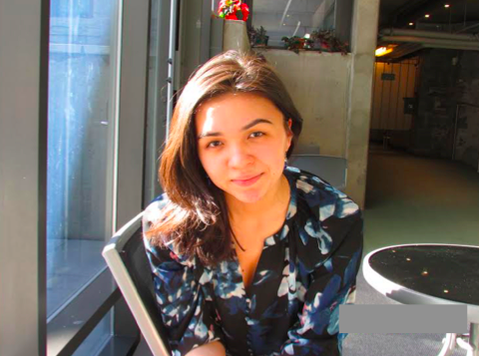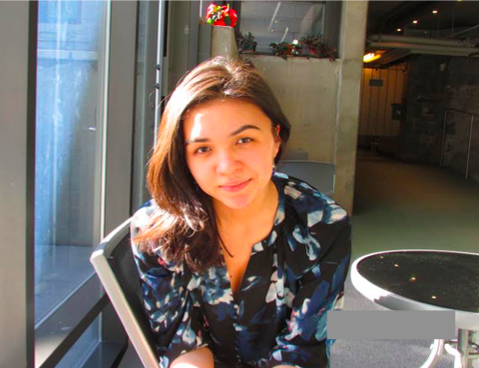Insights into Montreal Part 3: The Impact of a Book and Anecdotes from our First Book Giveaway20/7/2018
Has a book ever changed your life? When I was seventeen, one changed mine. I read a book that gently informed the rest of my teenage years and continues to guide me today. Rainer Maria Rilke’s Letters to a Young Poet fell into my hands as a gift from my father. It remained on my bedside table for a month before I tentatively reached for it on my way out one day and cracked it open at a Second Cup one faithful summer afternoon. I remember not being able to put the book down and I still remember Rilke’s words: “No experience has been too slight, and the least incident unfolds like a destiny, and fate itself is like a wonderful, wide web in which each thread is guided by an infinitely tender hand and laid alongside another and held and borne up by a hundred others”…. A cold coffee had never tasted so good. I was reminded of that passage recently. To me, it speaks to life’s little moments that we sometimes take for granted – the ones that seem little yet, in the grand scheme of things, have the power to greatly shape our lives. A couple weeks ago, Literacy Quebec had its first free book giveaway. Book donation boxes had piled up in our Verdun office that deserved to be opened and shared. So we set up a table on the sidewalk outside and gave each book a spot in our moveable library. The response was incredible. Before we even had a chance to finish setting up the full table and boxes beneath it, our first curious street-goer ventured over. And then another and another and…another. I pulled up a chair next to the table and watched joyfully as…
We really had a bit of everything on that table – War and Peace, books on the wines of Burgundy, a guide for first-time elementary school teachers, The Wind in the Willows, books on fashion, books on chocolate cake, parenting advice, poetry and books on places to visit. A bit of everything. And at the end of the day, we were surprised to find most books had cleared out. We were surprised about what people in our community gravitated toward and it turned out that “a bit of everything” had become our sweet spot. A bit of everything appealed to a bit of every one on the sidewalk that day and it was a fantastic thing to see. A small event like this one also strengthened a sense of community in Verdun. At one point, two women reached to take the same book - something that, for dramatic effect, could've spurred a small quarrel. However, they instead agreed to share the book. They exchanged phone numbers and agreed that when the first was finished reading, she'd call the other to arrange a meeting to exchange. And for some of our visitors, this initiative was an opportunity to grow their love of reading. Two little boys from the school across the street came by our table after their class let out. They were each holding a small plant and after they both chose their books, they scurried off. With a plant still in one hand, one boy had chosen a book about how pencils are made. He cradled it tightly with his other available hand. Perfect balance. The magic of the printed word is definitely not dead. People still reach for books when they can. It's just that, nowadays, buying new books and even some used ones can be costly and not everyone has time to browse a library. Sometimes a small sidewalk giveaway is needed to remind them of their love of reading. As I watched people come by our table, I caught a glimpse into the excitement that reading and books still spark. An event of this nature can have tremendous impact that isn’t necessarily quantifiable but can be subtly, powerfully informative to the rest of our lives. Mexican artist Jorgé Mendez Blake illustrated this in his viral art installation “The Impact of a Book”. The installation itself was 23 metres long and used 5000 bricks. Yet, only one book was needed for the message to be conveyed and sometimes that’s all it takes. A book, an illustration, a poem, a sentence, a word and an idea – they can all act as threads that support the wonderful, wide web of our lives. Insights into Montreal Part 2: Mr. Rogers, Community Storytelling and the Power of One-to-One9/7/2018
Every Mister Rogers' Neighborhood episode begins in the same way. As he enters his TV house, he starts by singing. Revisiting episodes of this beloved show is thought-provoking. I wasn’t born when Mr. Rogers debuted but I still find something enchanting about his daily ritual. When he was interviewed on the Charlie Rose show, Rose asked him how many children he thinks he’s influenced over the years and Mr. Rogers responded: The one-to-one moment is key. And those moments are hard to come by today. We do live in a culture of sharing but much of that sharing is focused on maximizing the amount of people reached rather than individual impact. For example, if you think about our version of stories today – you might think of Instagram, Snapchat or Facebook stories where one can string together pictures and videos taken throughout the day that normally only stay posted for 24 hours before fading away. A couple weeks ago, Literacy Quebec ran a Community Storytelling Workshop in partnership with fellow local organization, Suspicious Fish. All were welcome to come, listen to stories, write their own, receive feedback, engage with the Verdun community, and explore storytelling in its various forms. One of the best parts of the workshop was that it felt intimate and easy-going. We all shared stories with one another and listened to what each other wanted to say. It didn’t matter how many people were being influenced as much as it mattered that the people in the room felt comfortable to share. I racked my brain for a funny family anecdote to tell but came up with nothing. I talked about something I read in a magazine that I loved instead and it was great. Some of the best stories don’t even have a phenomenal ending or an extraordinary plot but are simply told with heart and that seems to be what matters most. Mr. Rogers once said, “The greatest gift you ever give is your honest self”. Through sharing stories we cherish, we can tell about our honest selves. And that gets us closer to those one-on-one magic connections. We all have stories to tell. Except right before telling them, we occasionally get stumped thinking that they aren’t worth sharing or aren’t noteworthy enough for people to care about. What if we replaced this doubt with another sentiment that Mr. Rogers frequently referred to in his shows? He finished every episode the same way in his closing song – by saying: "You always make each day a special day. You know how: By just your being you. There's only one person in the whole world that's like you, and that's you. And people can like you just the way you are. I'll be back next time. Bye-bye!" He would enforce this notion constantly and as Morgan Neville’s new documentary Won’t You Be My Neighbor? explores, contemporaries of Rogers would sometimes blame him for breeding a sense of entitlement and self-centeredness among children. He responded to these critics in his 2002 Dartmouth commencement speech: As Literacy Quebec and Suspicious Fish prepare for our next storytelling event on July 12th, I think about the value of the stories we tell. The simple act of sharing one story may seem like a drop in the ocean but maybe its impact is invisible to the eye. Each word has an undercurrent that reaches further. Had Mr. Rogers been so focused on impact and numbers, would the messages of his show have traveled as far as they have today? Our stories have power when we believe in them and no matter how many people they reach; they are special because they share a part of our honest self.
DO YOU HAVE A STORY ABOUT YOUR CHILDHOOD IN VERDUN? SUBMIT IT TO [email protected] UNTIL AUGUST 10TH.
This happened in the mid-80’s when I was in elementary school, grade six to be exact. I won’t use anyone’s names even though the story isn’t negative or critical of anyone. It is a bit graphic though and I’m still a bit embarrassed about the way I behaved at the end even if I was just acting like a goofy 11 year old caught up in school drama. So, I was in the 6th grade at St.Thomas More Elementary School back when there were enough English Schools that you may not have known every other English kid your age living in Verdun. From what I can remember, it was late fall and there was a small gang of us who had started to hang around each other enough that we thought of ourselves as a little gang among other little gangs. Again, this was 35 years ago and I can’t remember all the details. One piece that I’m a fairly clear of, but can’t completely see even if I close my eyes, is where our classroom was on the top floor of the building. There was a main stairway in the middle of the floor that all of the classes used. There was also a stairway that was at the end of the hall close to our classroom. This stairway was used at times, but for the most part students were not supposed to use it unless there was a real good excuse. If I remember correctly, one of the big attractions was that it was a bit of a shortcut to the school lunchroom. Looking back now, I have no idea why there was any big reason to want to get there before anyone else, but then again, who can remember much of what make us tick at that age? It was lunchtime and as the hall filled with students pushing and screaming and punching and screaming some more, myself and two of the guys in our little gang made a dash for the back door leading to these other stairs. Something else I remember about the layout was that unlike the main stairway that was covered in artwork and signs telling us to do this and that, this back one was bare and dark. Getting through the door unnoticed was no problem with the teachers distracted by all the noise. We did a quick check to make sure weren’t noticed and then made for the staircase. Like I already said, there was this need to get down there before anyone else and this feeling to win the race was combined with our love for sliding down banisters. Each floor was made up of two staircases that turned in the opposite direction. There were three floors to get down and so we would be taking six sets of rails in all. I can’t remember who went first down the first one, but in a few short seconds we had covered one set and had jumped off to get on the next one. This part I remember vividly. I had turned to look somewhere else for a moment, maybe up to see if anyone had followed us, and when I looked back only one of my friends was still there, but he wasn’t getting on the next rail, he was running down the stairs screaming the other one’s name. I watched him going down and then looked straight down between the opening of the crossing staircases. There I saw my other friend sitting upright against the wall at the bottom. He was in shock and staring straight ahead. I can’t say much about the details from here. In my memory, I next remember a teacher squatting next to him and trying to comfort him. From there, I feel like I remained at the top of the stairs and watched as he was attended to by paramedics, although I don’t think that I really stayed up there through all of that. I think that just comes from my memory of having it been retold. What I still think about in my own shock now is how he managed to cleanly fall between the narrow openings of the staircases all the way down to the bottom. My friend was okay in the end. Again, from memory I remember that we were told he suffered a ruptured spleen and other injuries, and that he missed what must have been a couple of months of school. I also remember that we rallied around him, made him cards and other get well gifts and collected money to pay for a new sweater to replace the one that the paramedics had to cut when they attended to him. I don’t know how this affected me as a kid. I don’t think it was too traumatic since we knew shortly afterwards that he was going to be okay. There was one incident not too long afterwards though that has stuck with me. I mentioned at the beginning of this story that we had our little gangs at St. Thomas More. I know that there were rivalries among the gangs and that like most kids, we weren’t always nice to those who weren’t in our cliques. It was an afternoon recess about a week after the fall and we were still in a state of breaking down that fall. I felt safe in my little group and also unified in our shared dislike of a kid in another group. I can’t remember how the conversation led to this other boy, but in the heat of our conversation I let it be known that I wished it was this other boy who had taken the fall between all those stairs. There was a hush and I knew right away that I had crossed a line. No one shared my preference for this and one of our members even went to our rival and told him what I said. Whatever followed makes me glad that we can’t recall our memories with perfect clarity. What I do remember was feeling shamed by the others in my gang. While I was still allowed to remain and while there was no real retribution for my mean sentiment, I was reprimanded by their distant behaviour towards me for the next few days. So while I do remember the shame and regret for saying what I said, there is a part of me that looks back at that time with a sense of gratitude for being surrounded by kids who had a sense of kindness and balance for just how far to push a good rivalry. Some of those kids are still friends of mine today. I kind of hope their memory of that time doesn’t include which kid said what I said. |
CategoriesArchives
October 2023
|
|
Literacy Quebec
4590 rue de Verdun suite 206 Montreal, QC H4G 1M3 |





 RSS Feed
RSS Feed

